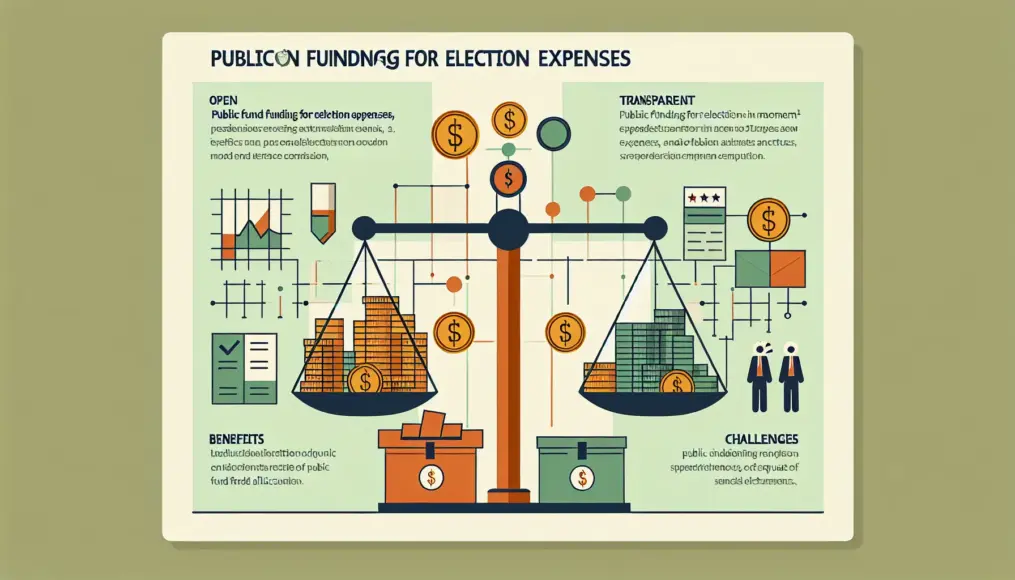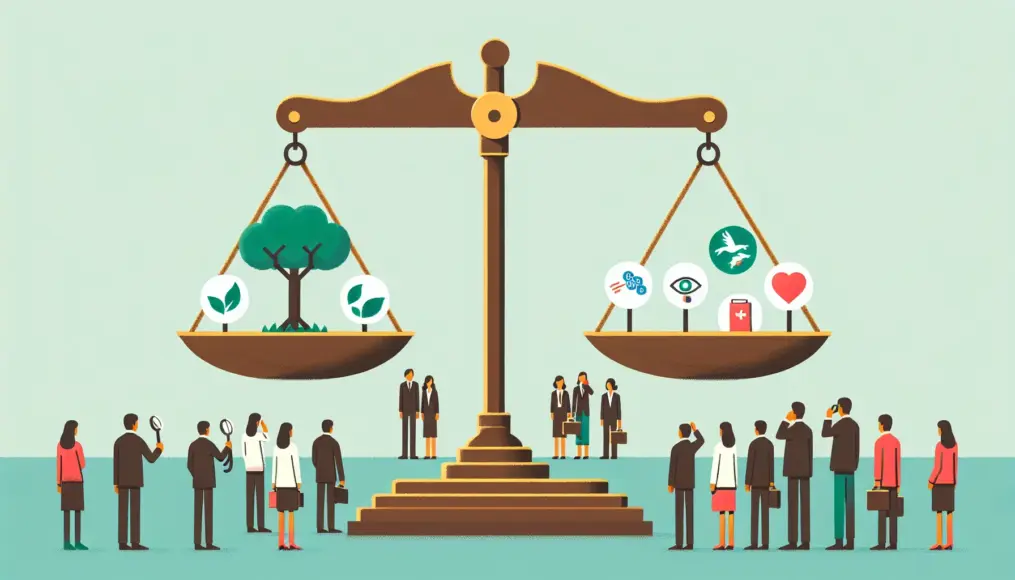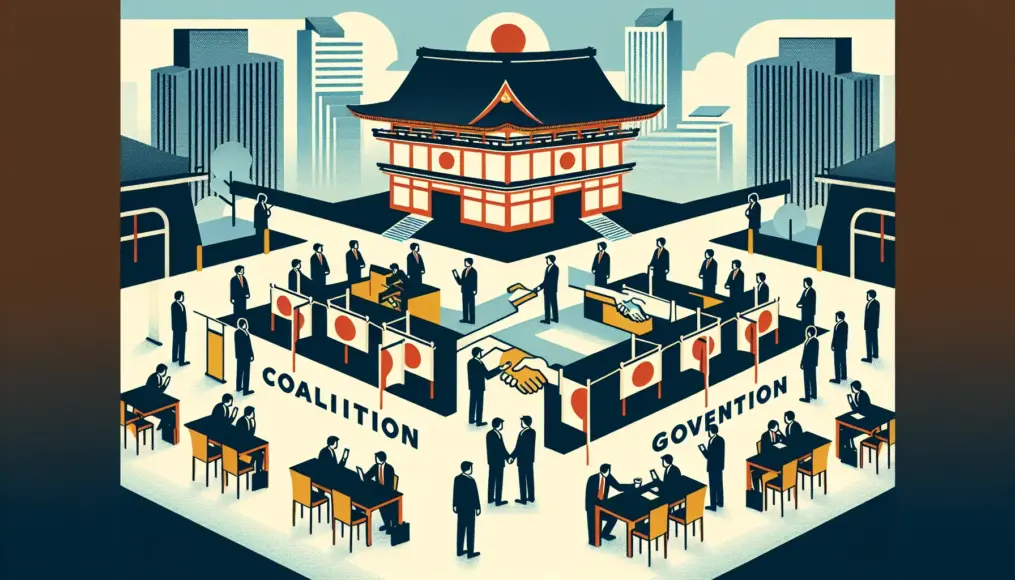Public funding of election expenses is a crucial aspect that underpins the very essence of democracy. Running for office requires significant financial resources, and by covering these costs with public funds, we enhance the transparency of political activities and create an environment where citizens can participate fairly. By exploring the background of this system and its historical developments, we can gain a deeper understanding of the characteristics and challenges of our electoral framework.
It’s equally important to delve into the benefits of public funding for election costs, as well as the challenges that arise from it. Comparing Japan’s electoral system with those of other countries can shed light on its unique features and potentially highlight areas for future improvement.
In this article, we will explore various perspectives on public funding of election costs and consider its impact on our political landscape.
- We will examine the purpose and history of public funding.
- How does funding improve the transparency of elections?
- A comparison of other countries’ cases with Japan’s electoral system.
The Purpose and History of Public Funding in Elections
Running an election campaign can be quite costly, and utilizing public funds to cover these expenses is crucial for the healthy functioning of democracy. The system of public funding aims to create transparency in the activities of politicians and political parties, ensuring that all citizens can participate in elections on an equal footing. In this section, we will explore how public funding came into existence and its impact on Japan’s electoral system.
The Birth of Public Funding
The public funding system was introduced to support the financial needs of political activities, ensuring fair elections that are not biased toward specific parties or candidates. This system is designed to prevent disparities in fundraising for elections and enhance transparency in politics. Particularly as campaign costs have escalated, it has become increasingly important to create an environment where ordinary citizens can easily engage in the political process.
- Public funding was established to ensure fair elections
- The goal is to enhance transparency in political activities
- It aims to create a more accessible environment for ordinary citizens to engage in politics
Historical Developments in Japan
Japan introduced its public funding system in the 1980s. Initially, it began as a way to cover a portion of the costs associated with election campaigns through public funds, and the system gradually expanded over time. Notably, the electoral reform of 1994 broadened the scope of public funding, allowing more candidates and parties to benefit from this system. These historical developments have had a significant impact on Japan’s political culture.
For those interested in delving deeper into this topic, we recommend reading the article “A Clear Explanation of Single-Member Districts and Proportional Representation! Exploring Their Differences and Benefits.” This article provides detailed insights into the fundamental mechanisms of electoral systems and can help expand your understanding of elections.
- Japan introduced its public funding system in the 1980s
- The scope expanded with the electoral reform of 1994
- Public funding has influenced Japan’s political culture
The Benefits of Public Funding for Election Costs
Public funding of election expenses offers numerous advantages. Firstly, it enhances the transparency of the political process, creating a trustworthy electoral environment for citizens. Additionally, by providing financial support, public funding ensures that all candidates can participate in elections on an equal footing, ultimately improving the quality of democracy. In this section, we’ll explore how public funding boosts political transparency and fosters fair elections.
Enhancing Political Transparency
The public funding system clarifies how politicians and political parties raise their campaign funds by supporting the costs associated with election activities. This transparency in the flow of money increases public trust in the electoral process. Notably, it reduces the influence of financial backers, allowing politicians to be more responsive to the voices of their constituents. As a result, politics becomes more aligned with the needs of the citizens.
- Public funding makes fundraising transparent
- Increased public trust allows politicians to better reflect citizens’ voices
- Fairness in political activities is maintained
Achieving Fair Elections
Public funding helps prevent specific parties or candidates from having a financial advantage. This ensures that diverse voices can be represented in elections, independent of wealth. Consequently, voters have a wider array of candidates to choose from, enhancing the overall quality of democracy. The realization of fair elections also significantly boosts citizens’ engagement in the political process.
- Prevents specific parties or candidates from gaining financial advantages
- Diverse voices are represented in elections
- Voter choices expand, improving the quality of democracy
Challenges and Criticisms of Public Funding
While public funding systems offer numerous advantages, they also come with several challenges and criticisms. Notably, budget constraints and the risk of misuse significantly impact the operation of these systems. This section delves into how these challenges affect the electoral process.
Budget Constraints and Their Impact
Public funding is limited by a fixed budget, which can lead to insufficient resources for campaign activities. This budget limitation can adversely affect the activities of candidates and political parties. Smaller parties and emerging candidates, in particular, may struggle to conduct effective campaigns due to a lack of funds, undermining fair competition. Such circumstances pose a significant obstacle to the healthy functioning of democracy.
- Public funding comes with a limited budget
- Insufficient funds can negatively impact candidates and parties
- Creates disadvantages for smaller parties and emerging candidates
Measures to Prevent Misuse
The public funding system also carries the risk of misuse. When the allocation of funds becomes unclear, the likelihood of exploitation increases. Consequently, there is a pressing need for specific measures to enhance transparency and prevent misuse. For instance, clarifying the intended use of funds and strengthening audits are efforts being made to combat fraud; however, achieving complete safeguards remains challenging.
Understanding the challenges associated with public funding is crucial for considering the electoral system as a whole. If you’re interested in this topic, you might also find this article on the background of electoral systems and the importance of civic participation insightful: “Exploring the Functions and Impact of Unified Local Elections”. It will help deepen your understanding of how elections support democracy.
- Risks of misuse are present
- Lack of transparency in fund allocation makes exploitation more likely
- There is a demand for enhanced audits and transparency measures
Election Systems: Insights from Other Countries and Japan
The public funding of election costs varies significantly from country to country, each adopting unique approaches influenced by their political cultures and historical contexts. In this section, we will explore examples from the United States and European nations, highlighting the contrasts with Japan’s electoral system and considering potential areas for improvement.
The American Model
In the United States, there is a system for public funding of election costs; however, a substantial portion of campaign financing is sourced from private donations. Particularly during presidential elections, regulations are in place to ensure transparency in campaign finances, yet large sums of money often play a significant role in political influence. This has led to criticisms regarding the fairness of elections.
- The U.S. has a public funding system in place.
- Campaign financing primarily relies on private donations.
- Large sums of money frequently influence politics.
Approaches in European Countries
Many European nations widely adopt public funding, offering financial support for election activities. For instance, in Germany and France, election-related costs are legally regulated, aiming to enhance transparency and fairness. Moreover, there is stringent oversight regarding the use of campaign funds, which strengthens efforts to prevent misuse.
- European countries broadly implement public funding.
- Financial support for election activities is provided publicly.
- Strict monitoring acts as a safeguard against misuse.
Conclusion
Public funding for election costs is an essential component for the healthy functioning of democracy. This system is expected to enhance political transparency and facilitate fair elections, but it also faces challenges such as budget constraints and the risk of misuse. By looking at examples from other countries, we can gain valuable insights for improving our electoral system. It is crucial for each of us to remain engaged as we work towards enhancing the election process in the future.
- The public funding system enhances political transparency
- A vital element for ensuring fair elections
- Learning from other countries can promote improvements in Japan’s system
Deepening our understanding of the electoral system strengthens our democracy. We would love to hear your thoughts and feedback on this article!



Comment